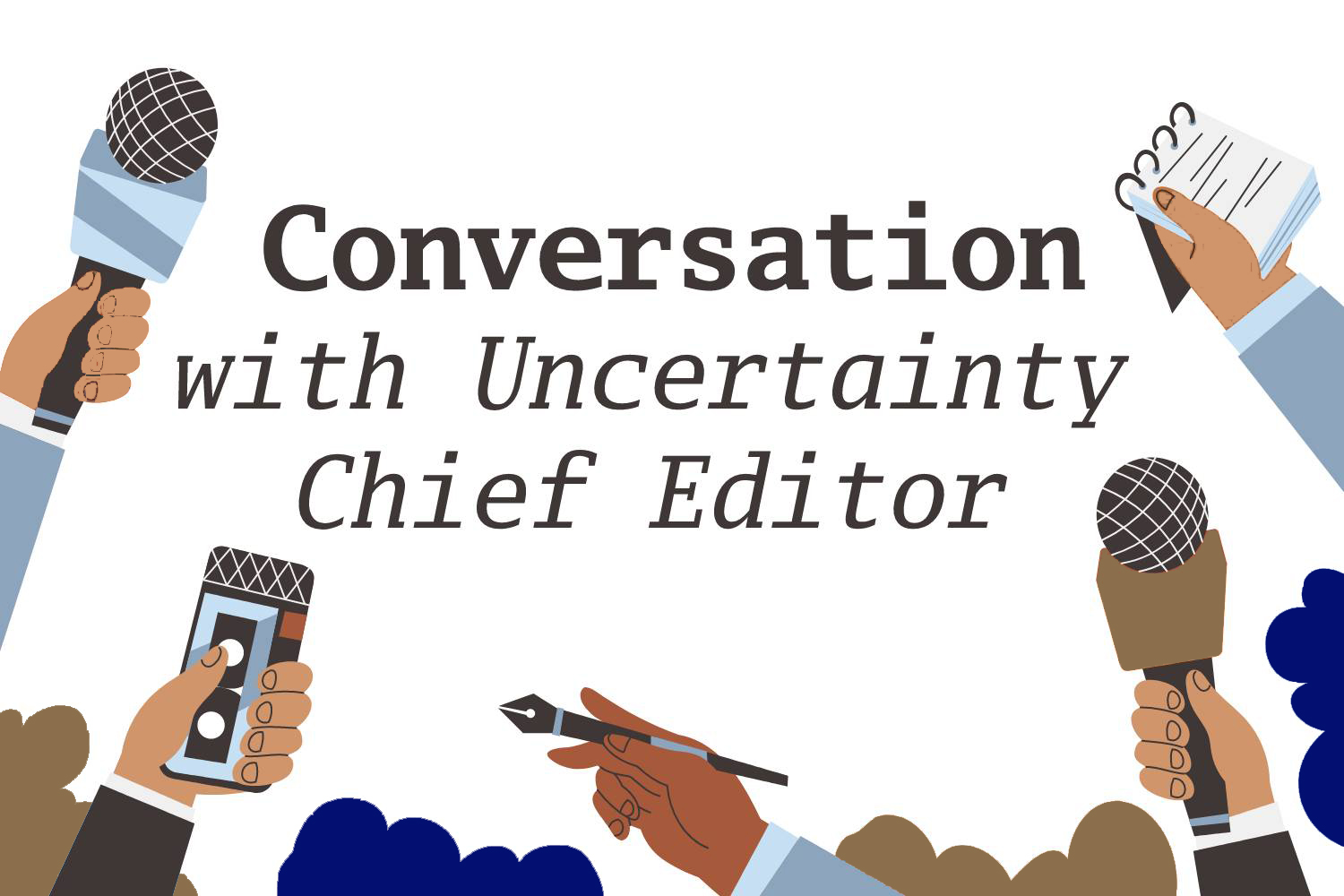Conversation with Uncertainty Chief Editor

Author: Refaad
Date: 20/05/2023
2802Conversation with Uncertainty Chief Editor: Professor Shawkat Alkhazaleh
We spoke with Professor Alkhazaleh, Chief Editor of the journal, about his research background and about the new journal.
What is your background in this field?
I have been actively involved in research on uncertainty since my master's degree, where I conducted a thesis on fuzzy sets and their properties. I continued my research by completing a doctorate on the same topic, focusing on linking fuzzy sets with soft sets and applying them to decision-making problems and medical diagnosis assistance. Since then, I have published numerous research articles. My work on fuzzy sets made me realize that they are part of the broader subject of uncertainty, which motivated me to explore uncertainty in various domains.
What do you think is currently the hottest topic in this field?
Certainly, here are a few of the currently hottest topics in fuzzy and uncertainty:
Explainable AI (XAI) with uncertainty: With the growing use of AI, there is a growing need for explainability, especially in applications that involve uncertainty. Researchers are developing new approaches to AI that can explain how the AI arrived at its decisions while also accounting for the uncertainty inherent in the input data.
Fuzzy logic and optimization: Fuzzy logic has shown great promise in optimization problems where traditional optimization methods struggle. Researchers are developing new techniques that integrate fuzzy logic with optimization to address complex problems in various domains.
Uncertainty quantification and management: With increasing complexity in models, there is a growing need to quantify and manage uncertainty. Researchers are developing new methods for uncertainty quantification and management that can improve decision-making and mitigate risks in various fields.
Fuzzy clustering and classification: Fuzzy clustering and classification methods are widely used in data mining and machine learning. Researchers are developing new algorithms that can handle large datasets, high dimensionality, and uncertain data.
Decision making under uncertainty: Decision making under uncertainty is a critical research area, particularly in the context of risk management and finance. Researchers are developing new methods for decision-making that can account for uncertainty and risk in various domains.
What is the most important mission for the journal?
The most important mission of the Journal of Uncertainty is to advance the field of uncertainty and provide a platform for researchers to publish high-quality research in this area. Our journal aims to promote interdisciplinary research and foster collaborations between researchers from different disciplines who are interested in uncertainty modeling and analysis. We also strive to publish research that has practical applications in various fields, such as finance, engineering, environmental science, and healthcare. Our goal is to provide a forum for researchers to share their findings and ideas, and to disseminate knowledge that can be used to improve decision-making and mitigate risks in different domains.
Can you introduce some of the key members of the editorial board?
Prof. Dr. Emeritus Florentin Smarandache: He is a renowned mathematician and a pioneer in the field of neutrosophic logic, which is a type of logic that deals with incomplete, indeterminate, and inconsistent information. He has authored and edited numerous books and research papers in the field of mathematics and uncertainty.
Prof. Dr. Amgad Salem Salama: He is a prominent researcher in the field of fuzzy logic and its applications, including decision-making, optimization, and control systems. He has published several research papers and books in these areas and is a well-respected member of the international fuzzy logic community.
Prof. Dr. Deli Irfan: He is an expert in the area of rough sets and their applications to uncertainty modeling and decision-making. He has authored several research papers and books in the field and has made significant contributions to the development of rough set theory.
Prof. Dr. Memet Şahin: He is a leading researcher in the area of interval-valued fuzzy sets and their applications to decision-making and risk analysis. He has published several research papers and books in these areas and has made significant contributions to the development of interval-valued fuzzy set theory.
Prof. Dr. Said Broumi is a professor of computer science and operations research at the University Hassan II in Morocco. His research interests include soft computing, decision-making, optimization, and data analysis. Dr. Broumi has published numerous articles and book chapters on fuzzy sets, rough sets, and their applications in various fields.
Prof. Dr. Faruk Karaaslan is an associate professor of mathematics at Çankırı Karatekin University in Turkey. His research interests include algebraic structures, topology, generalized nets, and fuzzy sets. Dr. Karaaslan has published over 50 articles and book chapters in various mathematical fields and serves on the editorial boards of several journals.
Where do you see the journal in the future?
based on its current mission and the strong editorial board, I believe the Uncertainty Journal has the potential to become a leading publication in the field of uncertainty and related topics. With its focus on cutting-edge research, innovative approaches, and interdisciplinary perspectives, the journal can continue to attract high-quality submissions and provide a platform for scholars to share their findings with the wider academic community. As the field of uncertainty continues to evolve, the Uncertainty Journal can play a key role in advancing knowledge, promoting dialogue, and shaping the direction of future research.
